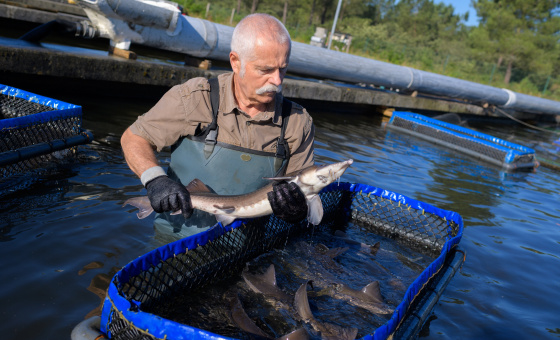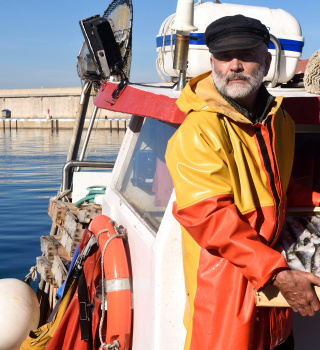
Description
A fish farmer maintains and looks after fish and is responsible for feeding and breeding them for the purpose of selling or trading them. They take care of the health, feed and the quality of feed, providing them with safe and clean habitat and sometimes use machine for this purpose.
Keeping fish farms is a type of aquaculture. Mostly fish farms are kept and maintained to sell them for human consumption, either by selling to locals within the villages and big companies within the country or to export them to other countries. However sometimes fish farms are kept to increase the number of fish in the seas and rivers and other waters either for the purpose of recreational fishing or to supplement the number of fish which are depleting as they are caught faster than they reproduceand are on the verge of getting extinct.
Some of the most important species of fish that are produced through fish farming are as follows:
- Salmon
- Tilapia
- Catfish
- Carp
- Tuna
Methods
1. Cage method
Cages are placed in sea, lakes or rivers and they contain and protect fish until they have grown and are ready to be cultivated. They will be provided food in those cages and when they have grown enough to be sold then they will be harvested.
2. Fish ponds method
They make irrigation ditches or fish ponds for keeping and growing fish. They feed the fish food here and use their waste as fertilizer. The size of ponds and ditch varies on the amount of water that is available and whether it is a small scale or a large scale fish farm.
3. Integrated recycling method
This is themost environment friendly method for fish farming. In a greenhouse, they put plastic tanks and raise the fish there. Plants are grown inside the tanks providing the fish with food and nutrients and then they sell the fish when it has grown.

Common Duties/Routines
Basically, fish farmers grow fish, take care of their health and monitor the quality of their feed, calculate what time they need to be fed, make sure that the water supply to the fish is of good quality, make well thought out breeding plans for them and work on procedures and ways to maximize their profit. They also need to keep check that they are meeting the environmental standards and rules and regulations.
They also need to be well aware of any technological advancementsand changes they can make to make their farms as cost effective as possible.
Fish farms may be small scale or large scale. Your pay and level of work will depend on that. If you do not want to be directly involved in fish farming, you can also be a teacher and teach this or related subject in colleges or universities. Some fish farms also offer research prospects and you can pursue this.
You can also work abroad in counties where fish farming is done in ample amount.
Required/Trained Skills
- Should be physically fit because fish farming requires a lot of manual work and you need to be active.
- Good marketing skills as you have to sell your product at maximum profit.
- Communication skills as you have to interact with people you that work at the farm as well as potential buyers like big businesses or small scale sellers.
- Sharp memory for remembering the feeding times of the fish and other related things.
- Good numeracy skills to calculate the expenses and how much profit is being made or for other money related matters.
- Knowledge of most types of fish and their feed and a general basic know how of farming.
A degree in any farming related subject will be sufficient. A few examples would beagriculture, marine biology, zoology, marine sciences and aquaculture.
Some beforehand practical experience would prove extremely beneficial so it is recommended that you work on some fish farm during vacations or in your free time.
Work Environment
Fish farmers might have irregular and longer working hours during the breeding season and other times of the year and then they might have to work weekends and also be prepared for any emergency.
Salary/Compensation
Starting pay might be a little less but as you gain experience the salary might go higher.
You might get extra pay for working overtime or bonuses once in a while. Some extra perks like accommodation and vehicle might be available as well.
Вештине 8
Вештине
ТЕШКЕ ВЕШТИНЕ
- Biology knowledge
- Fisheries management skills
- Fish knowledge
МЕКЕ ВЕШТИНЕ
Мора имати:
- Teamwork
- Reframing
- Integrity
- Patience
- Coping

